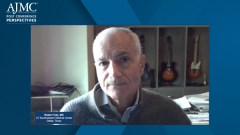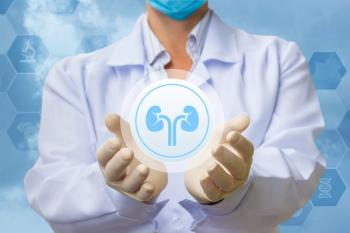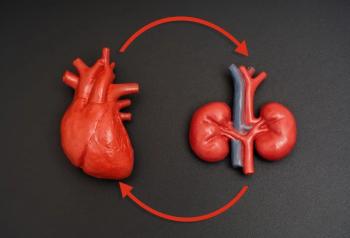
Implications of Dapagliflozin Analysis in CKD
An overview of the implications of the recent dapagliflozin data in chronic kidney disease (CKD) treatment to US clinicians and payers.
Episodes in this series

Robert Toto, MD: The implication for clinicians is that [dapagliflozin] is a drug that should become part of the standard of care for patients with chronic kidney disease who meet the criteria for entry into the trial. That’s a relatively large population of patients because we did include both patients with diabetes and kidney disease, as well as patients without diabetes and chronic kidney disease, and there were benefits in terms of the end points in both diabetic and nondiabetic populations. For patients, this is potentially an extraordinarily positive impact, given that it’s reducing not only kidney failure rates but also overall mortality rates. From a payer’s perspective, it’s important to remember there’s an interrelationship between the payers and the health system that the patient is going to. It encompasses the physicians working in the health care system and the operations of the health care system. What this tells me is that a closer working relationship between payers and the health care system could really save money for the health care system while at the same time saving lives of patients. That’s a great combination. That’s pretty hard to beat. This is a drug that clearly meets that bar.
The question is how these data will inform us in the future in terms of uptake by providers in the community, both specialists as well as primary care physicians. It’s going to have a profound impact. The catch is potentially the cost, because if a drug like dapagliflozin were free, physicians and providers would be using it as a standard of care in the near future. I think that will happen; it’s going to take time. The barrier is really going to end up being cost. If we can overcome that barrier, then that this will rapidly be taken up by the community. Typically, drugs like this are transformative, which this is since we haven’t had any advances like with dapagliflozin. [This will happen] once physicians are educated about the findings of the DAPA-CKD trial and see the benefits that they can reap for their patients, and the health care systems understand that it’s going to keep people out of the hospital and cut the cost of heart failure hospitalization, which is the No. 1 cause for hospitalization in the United States. They’re going to find that it’s going to be a great value for them and incentivize them to find a way to get this medication to the patient.
Transcript edited for clarity.
Newsletter
Stay ahead of policy, cost, and value—subscribe to AJMC for expert insights at the intersection of clinical care and health economics.










